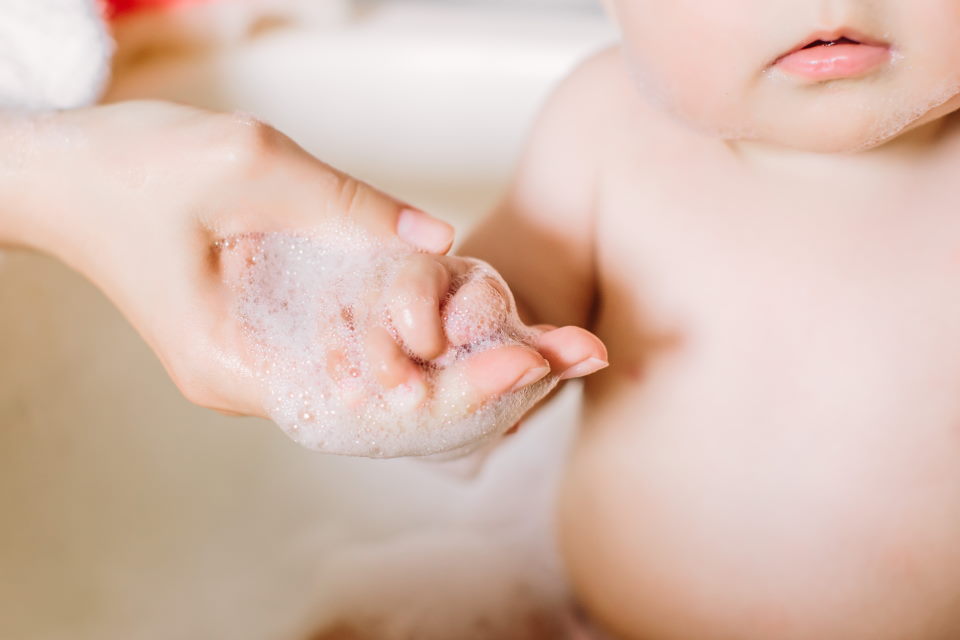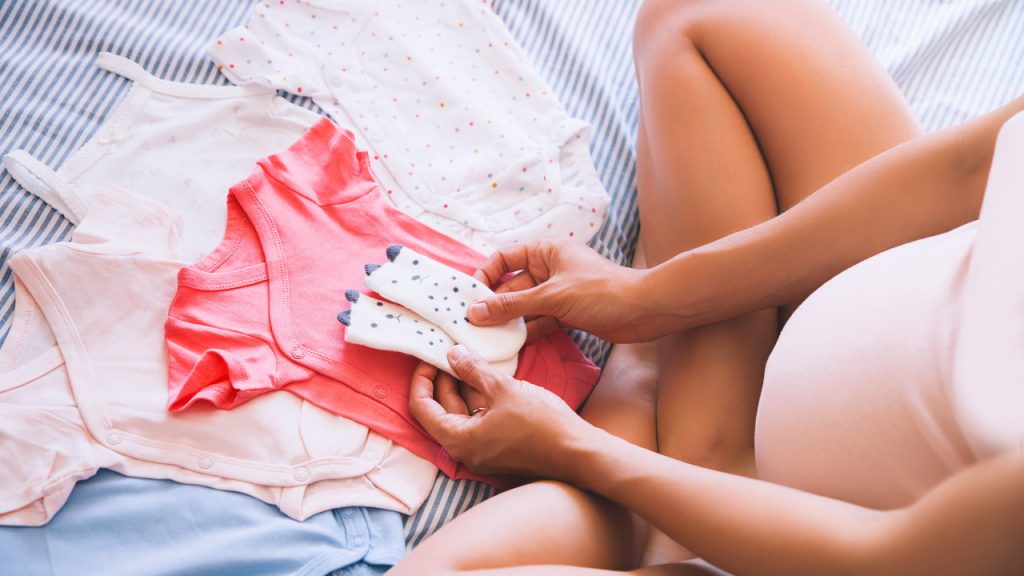As a parent, one of the many decisions you’ll make for your baby is how often to bathe them. With so much conflicting information out there, it can be confusing to determine the best bathing frequency for your little one. In this blog post, we’ll explore general bath frequency guidelines, factors to consider for bathing frequency, the benefits of daily bathing for babies, and potential risks of excessive bathing. By the end, you’ll have a better understanding of how to keep your baby clean and healthy without overdoing it. Let’s dive in!
General Bath Frequency Guidelines
When it comes to bath time, everyone seems to have their own opinions and preferences. Some people love to soak in a hot tub for hours, while others prefer a quick rinse in the shower. But what is the general guideline for bath frequency? Let’s dive into this hot (or cold!) topic and find out the best practices for keeping yourself squeaky clean.
First and foremost, it’s important to recognize that your bathing needs may vary depending on factors such as personal hygiene, physical activity, and climate. If you live in a hot and humid region, you might find yourself needing to bathe more frequently to combat sweat and heat. On the other hand, if you have dry skin or live in a colder climate, too many baths can actually strip your skin of natural oils, leading to dryness and irritation.
So what’s the magic number? According to experts, most adults can maintain good hygiene by bathing at least two to three times a week. This provides enough time for your body to naturally produce oils that keep your skin moisturized and protected. However, if you’re physically active or have a job that exposes you to dirt and germs, it’s recommended to bathe more often to keep your skin clean and free from infections.
Here are some factors to consider for bathing frequency:
- Personal preference: Some people simply enjoy the relaxation and refreshment of a daily bath or shower. If that’s the case for you, go ahead and indulge in a daily cleansing ritual!
- Sweat and odor: If you’re prone to sweating or have a physically demanding lifestyle, it’s crucial to wash off the sweat regularly to keep body odor at bay. This applies to athletes, laborers, or anyone who feels sticky and smelly after a workout.
- Hygiene habits: Good hygiene practices involve regular hand-washing, cleaning your intimate areas, and keeping your nails trimmed. These habits can help prevent the spread of germs and infections, so make sure to include them in your bathing routine.
In contrast, babies have different bathing needs. Their delicate skin requires gentle care and attention. While some parents may be tempted to give their babies daily baths, it’s actually recommended to bathe infants two to three times a week. This is because newborns have sensitive skin that is prone to dryness and irritation. Over-bathing can disrupt the natural balance of oils and increase the risk of skin problems.
In summary, there are no hard and fast rules for bath frequency, as it varies depending on individual needs and lifestyles. The general guidelines suggest bathing at least two to three times a week for adults, with additional bathing required for those with specific needs or preferences. For babies, taking a few baths a week is sufficient to keep them clean and healthy. Ultimately, it’s important to listen to your body and adjust your bathing routine accordingly. So go ahead, hop in the shower, and enjoy a refreshing cleanse!
| Factors to consider for bathing frequency: |
|---|
| 1. Personal preference |
| 2. Sweat and odor |
| 3. Hygiene habits |
Factors To Consider For Bathing Frequency
When it comes to deciding how often we should bathe, there are several factors to consider. One of the main factors is our personal hygiene habits. If you’re someone who enjoys sweating it out at the gym or engaging in outdoor activities that leave you feeling sweaty and dirty, you may need to bathe more frequently. On the other hand, if you have a sedentary lifestyle and rarely engage in activities that make you sweat, you may be able to get away with bathing less frequently.
Another factor to consider is our skin type. People with oily skin tend to produce more sebum, which can make their skin feel greasy and dirty. As a result, they may need to bathe more often to keep their skin clean and fresh. However, if you have dry or sensitive skin, frequent bathing can strip away the natural oils that protect your skin, leading to dryness and irritation. In this case, it’s best to limit your bathing frequency to avoid aggravating your skin.
The climate and weather conditions in your area can also influence how often you need to bathe. In hot and humid climates, you may find yourself sweating more and feeling sticky, which can prompt you to bathe more frequently. On the other hand, in colder and drier climates, excessive bathing can further dehydrate your skin, so it may be wise to reduce the frequency of your baths.
- Consideration of bathing frequency:
- Personal hygiene habits
- Skin type
- Climate and weather conditions
| Factors to Consider | Recommended Bathing Frequency |
|---|---|
| Active lifestyle, oily skin | Daily or every other day |
| Sedentary lifestyle, dry/sensitive skin | Every 2-3 days |
| Hot and humid climate | Daily or every other day |
| Cold and dry climate | Every 2-3 days |
In conclusion, there is no one-size-fits-all answer to how often you should bathe. It ultimately depends on your personal preferences, hygiene habits, skin type, and climate. It’s important to strike a balance between cleanliness and the maintenance of your skin’s natural protective barrier. So, before lathering up with soap and water, consider the factors that influence bathing frequency and tailor your bathing routine to suit your individual needs.
Benefits Of Daily Bathing For Babies
Daily bathing for babies can provide various benefits that contribute to their overall health and well-being. From keeping their delicate skin clean to promoting relaxation, there are many reasons why incorporating a daily bath into their routine can be beneficial. Let’s take a closer look at some of the advantages:
1. Hygiene: Daily bathing helps to keep a baby’s skin clean and free from dirt, sweat, and other impurities. This is especially important as babies have more sensitive skin compared to adults, making them more susceptible to rashes, irritations, and infections.
2. Soothing and Relaxing: Bathing can have a calming effect on babies, helping them to relax and unwind before bedtime. The warm water and gentle strokes while bathing can mimic the sensation of being in the womb, creating a soothing environment that promotes better sleep.
3. Skin Care: Regular bath time routines allow parents to check and care for their baby’s skin. Applying moisturizers or baby lotions after bathing can help maintain the natural moisture and softness of their skin. This can prevent dryness and conditions like eczema.
4. Bonding Time: Bathing can serve as a special time for parents and babies to bond and create a stronger connection. The one-on-one interaction and physical contact during bath time provides an opportunity for parents to talk, sing, and play with their little ones, fostering a sense of love and care.
5. Sensory Stimulation: Bathing exposes babies to different sensory experiences, such as feeling the water, hearing the sound of pouring water, and seeing various bath toys or colorful bubbles. This stimulation can support their cognitive and sensory development, enhancing their overall learning abilities.
While daily bathing can offer these benefits, it’s essential to keep in mind that each baby is unique. Factors such as their age, skin type, and personal preferences should be considered when determining the appropriate bathing frequency. Always consult with your pediatrician for any specific guidelines or recommendations based on your baby’s individual needs. So, grab the rubber duckies and enjoy those precious bath time moments with your little one!
Potential Risks Of Excessive Bathing
When it comes to keeping our little ones clean and fresh, baths are an essential part of our daily routine. However, as with anything in life, there can be too much of a good thing. Excessive bathing, although well-intentioned, can actually pose potential risks to our babies. It’s important to strike a balance between cleanliness and the delicate nature of their skin. So, let’s dive into the potential risks of excessive bathing and explore how we can keep our little ones healthy and happy.
One of the main risks of excessive bathing is that it can strip away natural oils from our baby’s delicate skin. These natural oils act as a protective barrier, keeping their skin moisturized and preventing dryness and irritation. When we bathe our babies too frequently, especially with harsh soaps or cleansers, we risk disrupting this vital barrier. As a result, their skin may become dry, sensitive, or even develop conditions like eczema. It’s important to use mild, baby-friendly products and limit bathing frequency to avoid stripping away these precious oils.
Another potential risk of excessive bathing is that it can disrupt the balance of beneficial bacteria on our baby’s skin. Our skin naturally hosts a variety of bacteria that contribute to its overall health. However, excessive bathing, particularly with hot water and aggressive scrubbing, can disrupt this delicate balance. The imbalance in bacteria can lead to skin infections, irritation, or even contribute to conditions like diaper rash. To maintain a healthy skin microbiome, it’s recommended to bathe babies in warm water and gentle cleansers, rather than excessively hot water or strong soaps.
| Potential Risks of Excessive Bathing: |
|---|
| 1. Stripping away natural oils from the skin |
| 2. Disrupting the balance of beneficial bacteria |
Lastly, excessive bathing can also pose a risk of over-drying our baby’s delicate skin. Babies have more sensitive skin compared to adults, and frequent contact with water can lead to excessive dryness. Dry skin can become irritated, itchy, and prone to eczema flare-ups. Therefore, it’s crucial to strike a balance between cleanliness and maintaining the natural moisture of their skin. Limiting bath time to a maximum of 10 minutes and using a gentle, moisturizing baby lotion afterward can help prevent the risk of over-drying.
In conclusion, while we all want our babies to be clean and fresh, it’s important to be mindful of the potential risks of excessive bathing. Stripping away natural oils, disrupting the balance of beneficial bacteria, and over-drying the skin are all concerns we need to address. By using mild products, warm water, and limiting bathing frequency, we can ensure our babies’ skin stays healthy and protected. So, let’s cherish those bath times and create a happy and safe environment for our little ones.








